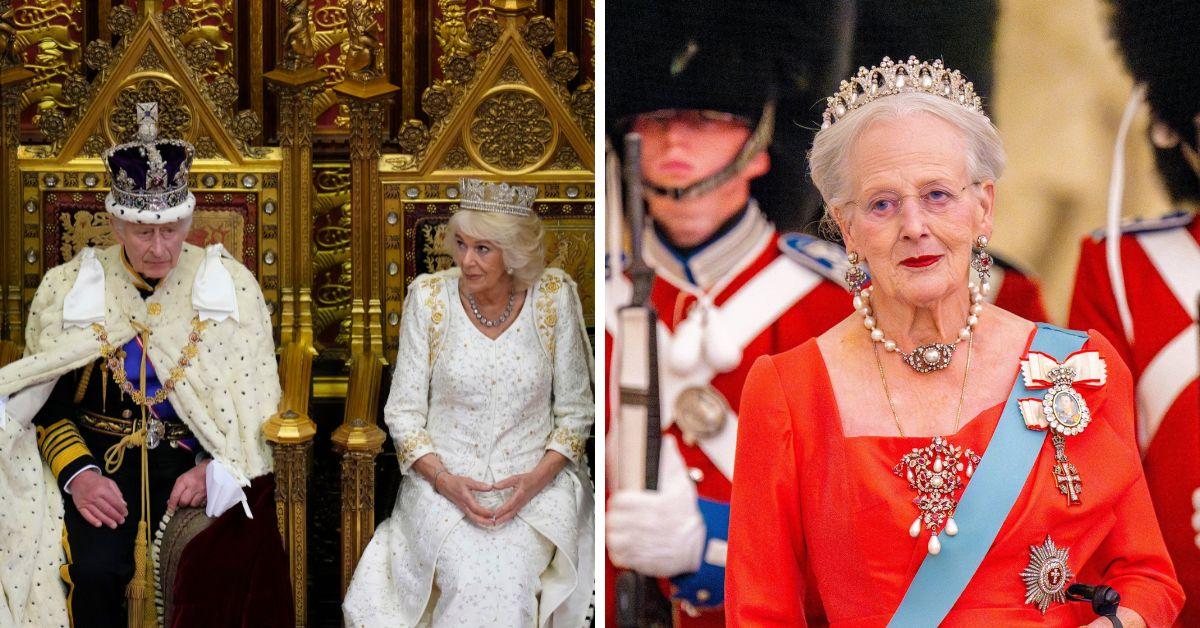In a surprising twist that has captivated global attention, King Charles III has announced the appointment of his sister, Princess Anne, as the new Queen.
This unexpected title change has ignited royal tensions within the British royal family and sparked heated debates, particularly concerning Queen Camilla.
The British monarchy, with its rich history and intricate web of traditions, has long fascinated people worldwide.
The dynamics of power and complex relationships within the royal family have made this decision all the more significant.

Queen Camilla, formerly known as the Duchess of Cornwall, was initially designated as Queen Consort after her husband ascended the throne. However, insider reports indicate that she has been advocating for a title shift, seeking to be recognized simply as “Queen.” This change is seen as a bold assertion of her ambition, aiming to elevate her status from that of a supportive figure to one of greater authority within the monarchy.
Traditionally, the title of Queen Consort is reserved for the wife of a reigning king, while the title of Queen is typically bestowed upon the ruling monarch. Camilla’s push for this title change reflects a desire for increased recognition as an influential member of the royal family, raising questions about the underlying power dynamics at play.
As King Charles dedicates himself to his royal duties, concerns about his physical health have surfaced, raising questions about his ability to fulfill his role as monarch. In light of these concerns, Princess Anne is set to represent the King during a visit to Oosterbeek this month, where she will commemorate the 80th anniversary of Operation Market Garden alongside her husband, Vice Admiral Sir Tim Lawrence. This appearance comes at a pivotal moment as the world watches to see how she navigates the complex waters of royal protocol.

With each engagement, Princess Anne is proving herself a worthy heir to her mother’s legacy, showcasing unwavering duty and devotion even in the face of uncertainty. Yet, as she steps into the spotlight, she is aware that the path ahead will be fraught with challenges and obstacles that will test her resolve.
In the upcoming biography, *The Making of King Charles III: A Modern Monarchy*, author insights reveal Princess Anne’s perspective on the challenges her brother faces as he assumes the role of king later in life. She emphasizes the value of experience, suggesting that this later start allows for a deeper understanding of the responsibilities and complexities of the monarchy. Both Anne and Queen Camilla’s sister, Elliot, foresee significant changes under King Charles’s reign, challenging the notion of him as merely a transitional monarch.
Meanwhile, Prince William has largely remained silent on these developments, underscoring the importance of modernizing the monarchy to ensure its relevance for future generations. His acknowledgment of the emotional strain within the royal family highlights the broader implications of this royal reshuffling.

As speculation continues to swirl regarding the future of the British monarchy, Princess Anne’s candid revelations offer a unique perspective on the reign of King Charles III and the eventual ascension of Prince William. The complexities and nuances of royal succession are underscored, revealing the critical need for experience, adaptability, and forward-thinking leadership in navigating the monarchy’s future.
The royal family stands at a crossroads, with all eyes now on how these changes will shape the institution in the years to come.